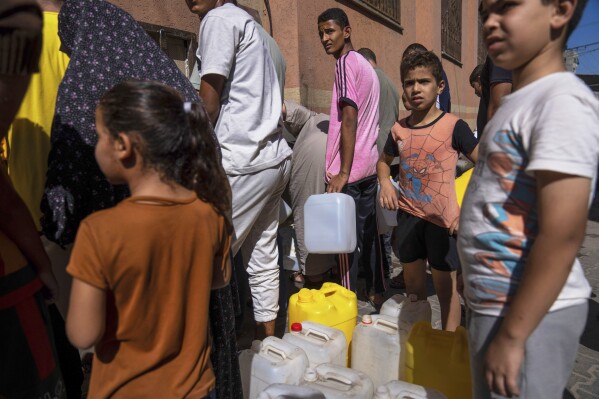It has been heavy to watch the past week and a half of conflict unfold in the Jordan Valley. However- this heaviness pales in comparison to the death and fear the people in the region are experiencing right now. It is hard to direct our sympathy to something meaningful as college students lacking significant monetary resources. One thing we can do with our extreme privilege to receive a private higher-level education is begin to untangle the constant string of conflicting information, both on the news and social media. This can both inform our peers and help others with resources to figure out how and where to direct them.
One topic I have heard mixed information about is the cutting-off of crucial supplies to Palestine. It is definite that “Israel stopped piping water to Gazans” on Sunday October 7th after the Hamas attack on the border (Reuters). This poses a serious health crisis in Palestine. However, there have been mixed messages about the original need for Israel to supply this resource to Palestine. So, I wanted to explore the origin of resource supply to Palestine by Israel in hopes of gaining a better understanding of the role of resources in the conflict.
History of Water Supply between Israel and Palestine
According to Amnesty International Israel supplies water to Palestine as a result of the 50 year occupation. “In November 1967 the Israeli authorities issued Military Order 158, which stated that Palestinians could not construct any new water installation without first obtaining a permit from the Israeli army” (Amnesty International). This order makes it so even today Palestine cannot drill new wells or even strengthen pre-existing water infrastructure. Additionally, rain water collection is controlled by Israel in the region. As of 2017, “180 Palestinian communities in rural areas in the occupied West Bank have no access to running water.”
Additionally, according to climate diplomacy despite Intifadas and widespread outrage about the control of water in Palestine, the issue remains in deadlock and Israel maintains unilateral control. While Israel has created large-scale desalination plants to supply water to their own population, “the Palestinian population has been suffering water shortages” (Climate Diplomacy).
According to the Jewish Virtual Library (JVL) in 2013 Jordan, Israel, and Palestine signed a water-sharing agreement in the form of a Memorandum of Understanding. Water is scarce in the region so it is necessary for states in the region to strategize together to maximize the resource. In 2017 Israel agreed to provide more drinking water to rural towns and villages in Palestine (after the data of the 180 rural towns lacking drinking water). Additionally, Israel’s largest water supply company Mekorot committed to building a fourth pipe-line, increasing the already 3 billion gallons of water supplied to Gaza yearly. Military Order 158 seems to still be in place as it is detailed by the JVL that Israel authorized the Palestinian Water Authority to create a wastewater pipeline for agricultural use in August 2022.
Analysis
There are conflicting messages on Israel’s supply of water to the Gaza strip prior to the conflict. It is clear that water supply in the country was lacking however it is unclear if this is a result of Israel not permitting Palestine to create new water sources under Order 158 or Palestine being unable to and needing Israel’s help to create water infrastructure. Regardless, the water supply being controlled by Israel has allowed Israel to use it as a source of deterrence in the ongoing war. I suspect water will be an ongoing humanitarian issue during the conflict and it will be interesting to see how other states in the region respond. Additionally, it is unclear how the water supply in Palestine will be affected after the conflict. If the conflict results in a compromise or another occupation then Palestine will likely continue to utilize the Israeli pipelines, however, if it does not then a war-torn Palestine may have to rush to build their own water infrastructure and likely rely on foreign aid.
Sources
https://www.reuters.com/world/middle-east/hamas-says-gaza-water-still-cut-off-israel-says-some-provided-south-2023-10-16/#:~:text=Israel%20stopped%20piping%20water%20to,it%20was%20resuming%20some%20supplies.
https://climate-diplomacy.org/case-studies/israel-palestine-water-sharing-conflict
https://www.jewishvirtuallibrary.org/overview-of-israel-palestinian-water-issue


Ed Webb
October 26, 2023 — 2:13 am
Thoughtful analysis!